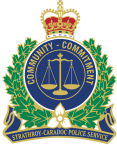- Being controlled by others and not able to speak for themselves;
- Not allowed to have/carry their own ID or Passport or Lying about age/false ID;
- Not having control of their own money or cellphone;
- Given a second cell phone with a secret number;
- Being controlled by others and escorted at all times;
- Not being allowed to contact family or friends;
- Withdrawing from family and friends;
- Providing rehearsed answers to casual questions;
- Being secretive about their activities;
- Having a new boyfriend, girlfriend, or friend who they won't introduce to friends/family;
- Having money or new items (clothing, jewelry, hotel keys, etc.) outside their financial means;
- Unfamiliar with the neigbourhood they live or work in.
NOTE: Not all indicators listed are present in every human trafficking situation.

